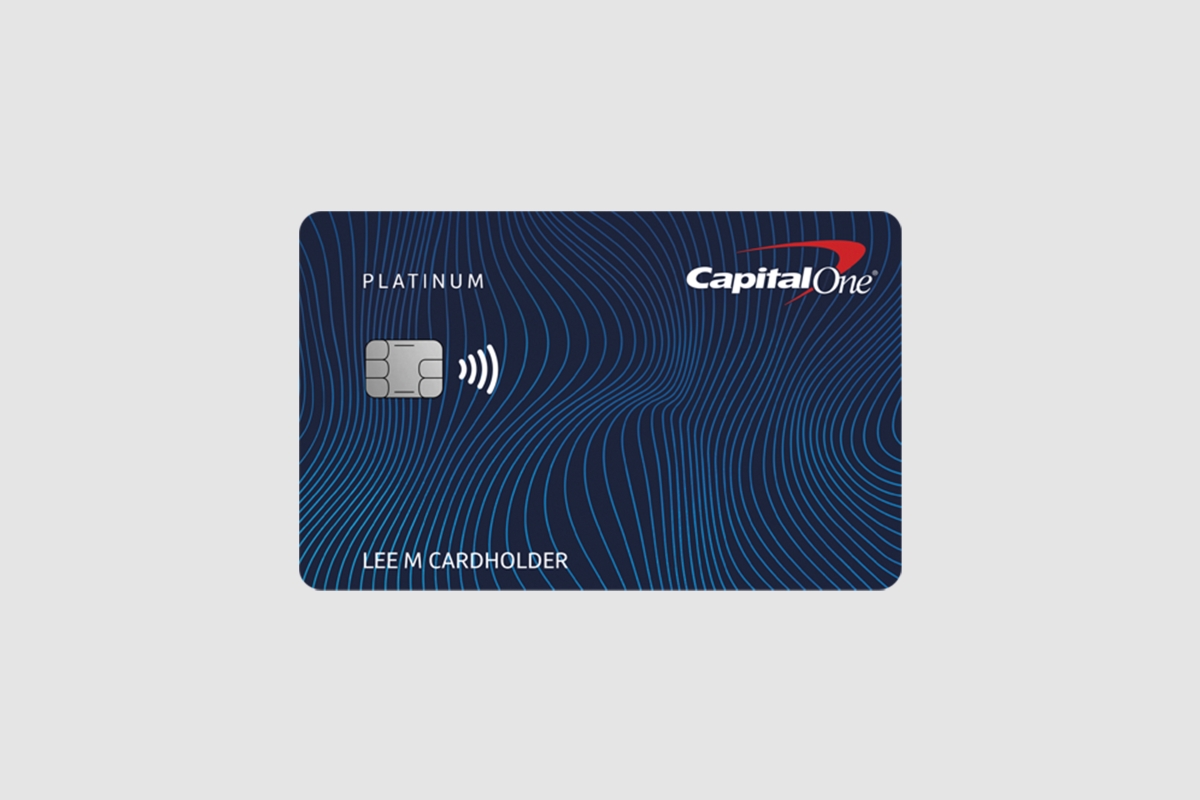Home>Finance>How Long Does It Take For Insurance To Approve Surgery?


Finance
How Long Does It Take For Insurance To Approve Surgery?
Published: November 16, 2023
Discover how long it typically takes for insurance companies to approve surgery and manage your financial concerns efficiently with our expert financial guidance.
(Many of the links in this article redirect to a specific reviewed product. Your purchase of these products through affiliate links helps to generate commission for LiveWell, at no extra cost. Learn more)
Table of Contents
Introduction
Undergoing surgery can be a major decision, involving careful consideration of medical needs, risks, and financial implications. One crucial aspect of the surgical process is obtaining insurance approval. The time it takes for insurance companies to approve surgery can vary significantly depending on several factors. Understanding these factors and the process involved can help individuals better navigate the insurance approval process and plan their surgical journey more effectively.
Insurance approval for surgery is essential because it ensures that the procedure is deemed medically necessary and covered by the insurance provider. While the exact timeframe for approval can differ, it is important to have a realistic expectation and be prepared for potential delays. In this article, we will explore the various factors that can impact the approval time for surgery, as well as provide tips and insights to help expedite the process.
Factors affecting insurance approval time for surgery can include the type of surgery being performed, the complexity of the procedure, the individual’s insurance coverage, and the overall efficiency of the insurance company in processing claims. It is important to note that insurance companies have their own guidelines and protocols in place to assess the medical necessity of a proposed surgery, which may involve a thorough review of medical records, consultations with healthcare providers, and communication between the insurance company and the patient.
Understanding the preauthorization process and requirements can significantly streamline the insurance approval timeline. Preauthorization is the process of obtaining approval from the insurance company prior to undergoing a surgical procedure. It usually involves submitting necessary documentation, medical records, and other supporting materials to demonstrate the medical necessity of the surgery. By ensuring that all required documents are properly compiled and submitted, individuals can help expedite the approval process.
Communication with the insurance company is also a crucial aspect of securing insurance approval for surgery. It is important to have open lines of communication, whether it is through phone calls, emails, or online portals, to ensure that all necessary information is provided and any questions or concerns can be addressed promptly. This proactive approach can help prevent misunderstandings, clarify any discrepancies, and potentially expedite the approval process.
Factors Affecting Insurance Approval Time for Surgery
Several key factors can influence the time it takes for insurance companies to approve surgery. Understanding these factors can help individuals manage their expectations and navigate the approval process more effectively. Let’s explore some of the primary factors:
- Procedure Complexity: The complexity of the surgery is a significant factor in insurance approval time. More intricate procedures may require additional review and documentation to justify their medical necessity. For instance, a routine appendectomy may receive quicker approval than a complex spinal fusion surgery.
- Insurance Coverage: The type and extent of insurance coverage an individual has can affect the approval process. Different insurance plans may have varying requirements, limitations, and exclusions for surgical procedures. It is essential to review the policy details and understand what is covered to avoid potential delays.
- Medical Necessity: Insurance companies typically require evidence of medical necessity to approve surgery. This involves demonstrating that the procedure is necessary to treat a specific condition or alleviate symptoms. The insurance company may request medical records, doctor’s notes, and other supporting documentation to evaluate the medical necessity of the surgery.
- Insurance Company Protocols: Each insurance company has its own set of protocols and processes for evaluating and approving surgeries. These protocols can vary in efficiency and thoroughness, impacting the approval time. Some insurance companies may have streamlined systems in place, while others may require more extensive review and consultation.
- Provider-Payer Relationship: The relationship between the healthcare provider and the insurance company can also play a role in approval time. Providers who have a history of successful collaboration and open communication with insurance companies may experience smoother and faster approval processes.
It is important to note that while these factors can influence approval time, they can vary greatly depending on individual circumstances and differences in insurance companies’ policies. Additionally, unexpected factors such as incomplete documentation, prior authorization requirements, and coordination of benefits with other insurance providers can also impact the approval process.
By being aware of these factors and actively engaging with both healthcare providers and insurance companies, individuals can navigate the surgery approval process more effectively and potentially minimize delays.
Preauthorization Process for Surgery
The preauthorization process plays a crucial role in obtaining insurance approval for surgery. It involves submitting necessary documentation and medical records to the insurance company to demonstrate the medical necessity of the proposed procedure. Understanding and following the preauthorization process can help expedite the approval timeline. Here are some key aspects of the preauthorization process:
- Reviewing Requirements: Before initiating the preauthorization process, it is important to review the specific requirements of the insurance company. These requirements can include completing specific forms, providing supporting documentation, and following any guidelines outlined by the insurance provider. By understanding and fulfilling these requirements, individuals can ensure that their submission is in accordance with the insurance company’s protocols.
- Compiling Documentation: Gathering and organizing the necessary documentation is crucial for a successful preauthorization request. This may include medical records, test results, imaging scans, clinical notes, referral letters, and any other supporting materials that demonstrate the medical necessity of the surgery. Ensuring that all relevant documents are complete and organized can help streamline the review process.
- Consulting with Healthcare Providers: It is often beneficial to consult with the healthcare provider who will be performing the surgery to ensure that all required information is included in the preauthorization request. They can provide insights into the procedure, any specific considerations, and additional documentation that may be needed to support the request. Open and clear communication with the healthcare provider can help strengthen the preauthorization submission.
- Submitting the Preauthorization Request: Once all the necessary documentation is compiled, it is time to submit the preauthorization request to the insurance company. This can typically be done online through the insurer’s portal or by mailing the request form and supporting documents. It is important to keep a record of the submission, including confirmation of receipt if submitted electronically.
- Follow-Up and Advocacy: After submitting the preauthorization request, it is essential to follow up with the insurance company to ensure that the request is being processed. This may involve regular communication to check the status, provide any additional information requested, and advocate for timely approval. Clear and proactive communication can help prevent delays and address any concerns that may arise during the review process.
It is important to note that the preauthorization process can vary depending on the insurance company and the specific surgical procedure being requested. Some insurance companies may have specific timeframes for review and approval, while others may require additional steps such as peer-to-peer consultations or second opinions. Being informed and proactive throughout the preauthorization process can help individuals navigate the system more effectively and potentially expedite the approval timeline.
Documentation and Medical Records Review
When it comes to obtaining insurance approval for surgery, the review of documentation and medical records is a critical component of the process. Insurance companies carefully evaluate the submitted materials to assess the medical necessity of the proposed surgery. Understanding the importance of documentation and medical records review can help individuals prepare and present a strong case for approval. Here are some key points to consider:
- Complete and Accurate Documentation: It is crucial to ensure that all documentation related to the surgical procedure is complete and accurate. This includes medical records, doctor’s notes, test results, imaging reports, and any other relevant information. Incomplete or missing documentation can significantly delay the approval process. Carefully review all documents before submission to ensure they are up-to-date and comprehensive.
- Evidence of Medical Necessity: Insurance companies require evidence that the surgery is medically necessary. This means showcasing the reasons why the surgery is essential for the individual’s overall health and well-being. Include detailed information about the medical condition, symptoms, previous treatments, and why the proposed surgery is the recommended course of action. Clearly outline how the surgery will improve the individual’s quality of life or prevent further complications.
- Supporting Documentation: In addition to medical records, supporting documentation can also strengthen the case for insurance approval. This may include referral letters from healthcare providers, second opinions, and any research or medical literature that supports the chosen surgical intervention. These additional materials can provide a more comprehensive understanding of the medical necessity and potential benefits of the procedure.
- Coding and Billing: Proper coding and billing are essential in the documentation process. It is important to ensure that the procedure codes and billing codes align with the specific surgical procedure being requested. Improper coding can lead to delays or denials in the approval process. Working closely with healthcare providers and coding specialists can help ensure accurate coding and billing.
- Medical Records Authorization: Some insurance companies may require individuals to sign medical records authorization forms, allowing the insurance company to directly request and review medical records from healthcare providers. It is important to carefully read and complete these forms to streamline the medical records review process.
By carefully compiling and reviewing documentation, individuals can present a strong case for insurance approval. Remember to review the specific requirements of the insurance company, consult with healthcare providers for additional insights, and ensure that all documentation is complete, accurate, and supportive of the medical necessity of the surgery.
Communication with Insurance Companies
Clear and effective communication with insurance companies is crucial when seeking approval for surgery. Engaging in open and timely communication can help individuals navigate the approval process more smoothly and potentially expedite the timeline. Here are some key points to consider when communicating with insurance companies:
- Know your insurance plan: Familiarize yourself with the details of your insurance plan, including coverage limits, deductibles, and any specific requirements for preauthorization. Understanding the specifics of your plan will enable you to communicate effectively with the insurance company and ask informed questions.
- Use preferred channels of communication: Insurance companies often provide multiple channels for communication, such as phone, email, or online portals. Identify the preferred channel of communication and use it to reach out to the insurance company. This will help ensure that your messages are received and attended to promptly.
- Be proactive: Take the initiative to contact the insurance company to inquire about the status of your preauthorization request. Regularly follow up to ensure that your request is being processed and to address any additional information needed. Being proactive demonstrates your commitment and may prompt the insurance company to prioritize your case.
- Keep records of communication: Maintain a record of all communication with the insurance company. Keep copies of emails, notes from phone conversations, and any other relevant documentation. This will serve as a reference if any issues arise or if there is a need to escalate the matter.
- Be polite and persistent: Approach communication with insurance companies in a polite and professional manner. Remember that the representatives are just doing their job, and being courteous can help foster a more productive dialogue. However, also be persistent in following up and advocating for prompt approval.
- Ask for assistance if needed: If you encounter challenges or roadblocks during the communication process, don’t hesitate to seek assistance. This could include reaching out to a customer service supervisor or utilizing the services of a healthcare advocate who specializes in insurance-related matters. These resources can help navigate any complexities and ensure that your concerns are addressed.
Effective communication with insurance companies is key to obtaining timely approval for surgery. By being knowledgeable, proactive, and persistent in your interactions, you can increase the chances of a smooth approval process and minimize unnecessary delays.
Special Cases and Exceptions
While the approval process for surgery generally follows a standard path, there are certain special cases and exceptions that may arise. These situations require additional attention and understanding to navigate the insurance approval process effectively. Here are some common special cases and exceptions:
- Emergency Surgery: In emergency situations where immediate surgery is required to save a life or prevent further harm, the preauthorization process may not be feasible. In these cases, it is important to contact your insurance company as soon as possible to inform them of the emergency and seek post-service authorization. Understand that emergency surgeries may result in different coverage and payment policies from your insurance provider.
- Out-of-Network Providers: If you are considering surgery with an out-of-network healthcare provider, it is important to understand the implications for insurance approval. Out-of-network providers may require prior approval from the insurance company, and the coverage and reimbursement rates may vary. Research and communicate with both the provider and your insurance company to clarify the process and potential out-of-pocket costs.
- Experimental Procedures: Insurance companies may have specific guidelines regarding coverage for experimental or investigational procedures. These procedures may not have established evidence of efficacy or may be considered alternative treatments. In such cases, insurance approval may be more challenging, and additional documentation and advocacy may be required to support the medical necessity of the procedure.
- Medical Appeals: If your initial request for insurance approval is denied, you have the right to file an appeal. This can involve submitting additional documentation, medical records, and supporting materials to argue your case. Understanding the appeals process, including deadlines and requirements, is important when seeking approval in special cases or when your initial request is denied.
- Coordination of Benefits: If you have multiple insurance policies, such as through both your employer and a spouse’s employer, coordination of benefits is necessary. This involves informing both insurance providers and ensuring the primary and secondary coverage is correctly identified to avoid delays or denials in approval. Understanding the coordination of benefits process and communicating effectively with both insurance companies is essential.
Special cases and exceptions in the insurance approval process may require additional research, documentation, and communication. It is important to be well-informed about your specific situation and consult with healthcare providers and insurance representatives to navigate these complexities effectively.
Tips for Expediting Insurance Approval for Surgery
Navigating the insurance approval process for surgery can sometimes be complex and time-consuming. However, there are several strategies and tips that individuals can employ to help expedite the approval timeline. Here are some useful tips to consider:
- Understand your insurance coverage: Familiarize yourself with the details of your insurance plan, including preauthorization requirements, coverage limits, and any specific guidelines for surgery approvals. Being knowledgeable about your coverage will help you navigate the process more efficiently.
- Communicate with your healthcare provider: Maintain open and clear communication with your healthcare provider throughout the approval process. They can provide valuable insights, assist with documentation, and advocate for your case when necessary. Collaborating effectively with your healthcare provider can help streamline the approval process.
- Compile and organize documentation: Gather all the necessary medical records, test results, and supporting documentation for your surgery. Ensure that the documentation is complete, accurate, and clearly demonstrates the medical necessity of the procedure. Well-organized documentation can expedite the review process.
- Submit the preauthorization request promptly: As soon as you have compiled all the required documentation, submit your preauthorization request to the insurance company. Prompt submission allows the review process to begin sooner, potentially reducing the overall approval time.
- Follow up regularly: Regularly follow up with the insurance company to inquire about the status of your request. Politely ask for updates, address any additional information needed promptly, and advocate for timely approval. Regular communication demonstrates your commitment and may prompt the insurance company to prioritize your case.
- Utilize online portals and electronic communication: Many insurance companies have online portals that allow for efficient communication and document submission. Utilize these portals for faster and more streamlined interactions. Electronic communication, such as emails, can also help expedite the approval process.
- Seek assistance if needed: If you encounter challenges or roadblocks during the approval process, don’t hesitate to seek assistance. Healthcare advocates or professional billing and coding specialists can provide expert guidance and support to navigate any complexities and ensure that your concerns are addressed.
- Be patient and persistent: While you may want a quick approval, it is important to remain patient. Some insurance companies may have longer processing times. However, be persistent in following up, providing any requested information promptly, and advocating for timely approval. Your persistence can help move the process along.
By following these tips and strategies, you can increase your chances of expediting the insurance approval process for surgery. Remember to stay proactive, organized, and communicative throughout the process to help facilitate a smoother and faster journey towards receiving insurance approval for your surgery.
Conclusion
Obtaining insurance approval for surgery can be a complex and time-consuming process. However, understanding the factors that influence approval time, following the preauthorization process, communicating effectively with insurance companies, and being aware of special cases and exceptions can help streamline the approval timeline. By implementing the tips and strategies provided, individuals can increase their chances of expediting the insurance approval process.
It is essential to familiarize yourself with your insurance coverage, compile and organize all necessary documentation, and submit your preauthorization request promptly. Regularly following up with the insurance company and utilizing online portals or electronic communication can also facilitate a faster approval process. Remember to be patient, but persistent in advocating for your case and seeking assistance when needed.
Navigating the insurance approval process for surgery may involve challenges, such as special cases or denials. In such instances, understanding the appeals process and coordinating benefits properly becomes crucial. Consulting with healthcare providers, insurance representatives, or healthcare advocates can help alleviate these challenges.
While there may be variations in the approval timeline depending on individual circumstances and insurance companies’ protocols, staying informed, proactive, and communicative can significantly increase the chances of obtaining timely approval for your surgery.
Remember, insurance approval is an important step in ensuring that your surgical procedure is deemed medically necessary and covered by your insurance provider. By being prepared, proactive, and persistent, you can navigate the process more effectively, allowing you to focus on your health and well-being during your surgical journey.














